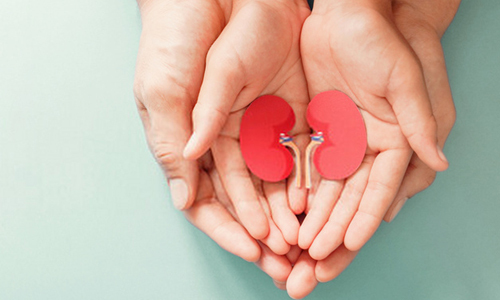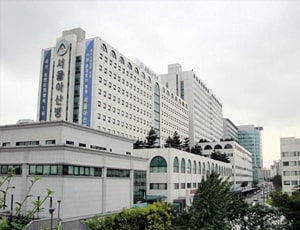The average cost of Kidney Transplant in Seoul approximately starts from USD 81000
Treatment cost

We provide numerous services for your medical journey, including:
We offer packages at reasonable pricing that include a variety of additional advantages, making it a better deal than paying for individual perks at the hospital. Kidney Transplant Surgery is a surgical process wherein a healthy kidney from a living or deceased donor is placed into a person�s body whose existing kidney is no longer functioning properly. There are five kidney failure stages and patients with end-stage renal diseases (fifth stage), undergo a kidney transplant. The surgery will once again, help your body to filter & remove waste, minerals & fluids from the blood by producing urine., For Kidney Transplant Surgery in Turkey, we are providing the best all-inclusive discounted package at Medicana Camlica Hospital with some additional benefits.

Some of the key inclusions which we provide as additional benefits of the package are:
We offer packages at reasonable pricing that include a variety of additional advantages, making it a better deal than paying for individual perks at the hospital. Kidney Transplant Surgery is a surgical process wherein a healthy kidney from a living or deceased donor is placed into a person�s body whose existing kidney is no longer functioning properly. There are five kidney failure stages and patients with end-stage renal diseases (fifth stage), undergo a kidney transplant. The surgery will once again, help your body to filter & remove waste, minerals & fluids from the blood by producing urine., For Kidney Transplant Surgery in India, we are providing the best all-inclusive discounted package at Max Super Specialty Hospital, Vaishali with some additional benefits.

Asan Medical Centre located in Seoul, South Korea is accredited by ISO. Also listed below are some of the most prominent infrastructural details:

A kidney transplant is a surgery where a healthy kidney from a living or deceased donor is placed into someone whose own kidneys aren't working properly. The kidneys, shaped like beans and located on each side of the spine below the ribs, normally filter waste and fluid from the blood to make urine.
The kidney performs several important functions in the human body. Even slight damage to the kidneys can, therefore, cause a lot of problems. When the kidney is rendered incapable of its main function, that is, removal of waste products from the blood, a condition called uremia develops.
Unfortunately, the symptoms of this condition do not develop unless 90 percent of the kidney is damaged. This is the time when an individual would require kidney transplantation surgery or dialysis to restore normal functioning.
Several other kidney diseases warrant the need for a kidney transplantation. Some of these conditions include the following:
During a kidney transplant, the surgery is performed under the influence of general anesthesia, and the surgical team keeps an eye on your heart rate, blood pressure, and oxygen levels.
The surgeon cuts the lower side of your abdomen, puts the new kidney inside, and leaves your kidneys unless they're causing issues. They connect the new kidney's blood vessels to yours and link the ureter (tube from the kidney to the bladder) to your bladder.
During the kidney transplant procedure, an intravenous line is initiated in the hand or arm, and catheters are connected to the wrist and neck to check the blood pressure, and heart status and take samples of blood. The groin or region below the collarbone can also be used for insertion of catheters.
The hair is shaved off or cleared in the region of the surgical site and a urinary catheter is inserted into the bladder. The patient is positioned on the operating table lying on their back. After the administration of general anesthesia, a tube is positioned into the lungs through the mouth. This tube is attached to a ventilator so that the patient can breathe during the surgery.
The anesthesiologist closely monitors the blood oxygen level, breathing, heart rate, and blood pressure. The site of the incision is cleaned with an antiseptic solution. A long incision is made by the doctor on one side of the lower abdomen. The donor's kidney is visually inspected before implantation.
Now the donor's kidney is placed in the abdomen. Usually, the left donor kidney is implanted on the right side and vice versa. This leaves the scope to connect ureters with the bladder. To the external iliac artery and vein, the renal artery and vein of the donor's kidney are sewn.
The donor ureter is then connected to the urinary bladder of the patient. With surgical staples and stitches, the incision is closed and a drain is positioned at the incision site to prevent swelling. Lastly, a sterile bandage or dressing is placed.
Post-surgery, Patients are required to spend several days to weeks in the hospital depending upon the situation, Healthcare professionals monitor the conditions in the recovery area to observe any signs of complications.
Patients also have to be in frequent follow-up sessions for a few weeks after hospital discharge. You may be required to have a blood test several times a week.
Immunosuppressive agents that fight rejection prevent this from happening. These medications have been prescribed by doctors to transplanted patients for their lifetime. The kidney transplant success rate is challenged if these medications are stopped. A combination of drugs is usually recommended.
The patient is encouraged to take small steps and start walking and moving a bit. The kidney transplant recovery period lasts for around two to three weeks after the surgery, after which the patient may return to normal life.
Ask your healthcare adviser for the best multiple options and choose the one that meets your expectations
The average cost of Kidney Transplant in Seoul starts from $81000. Only some of the best and certified hospitals in Seoul perform Kidney Transplantation for international patients.
The Kidney Transplant package cost in Seoul varies from one hospital to another and may offer different benefits. There are many hospital who cover the cost of pre-surgical investigations of the patient in the treatment package. The treatment cost usually includes the expenses related to hospitalization, surgery, nursing, medicines, and anesthesia. There are many things that may increase the cost of Kidney Transplant in Seoul, including prolonged hospital stay and complications after the procedure.
Many hospitals in Seoul perform Kidney Transplant. Some of the best hospitals for Kidney Transplant in Seoulinclude the following:
Upon discharge from the hospital after Kidney Transplant in Seoul, the patients are advised to stay for about 38 days for recovery. This is important to ensure that the surgery was successful. During this time, control and follow-up tests take place to check for medical fitness.
Apart from the cost of Kidney Transplant, the patient is also required to pay additionally for daily meals and guest house accommodation. These charges may vary from 40 USD per person.
The average duration of stay at the hospital after Kidney Transplant is about 7 Days for proper care and monitoring. During the recovery, the patient is carefully monitored and control tests are performed to see that everything is okay. If required, physiotherapy sessions are also planned during recovery in hospital.
There are about 1 Hospitals Kidney Transplant hospitals in Seoul that are best known for their services. These hospitals have the required infrastructure and a decided Kidney Transplant unit where renal failure patients can be treated. Also, these hospitals follow the necessary guidelines as required by the medical associations for the treatment of Kidney Transplant patients.
Some of the most sought after doctors for Kidney Transplant in Seoul are: